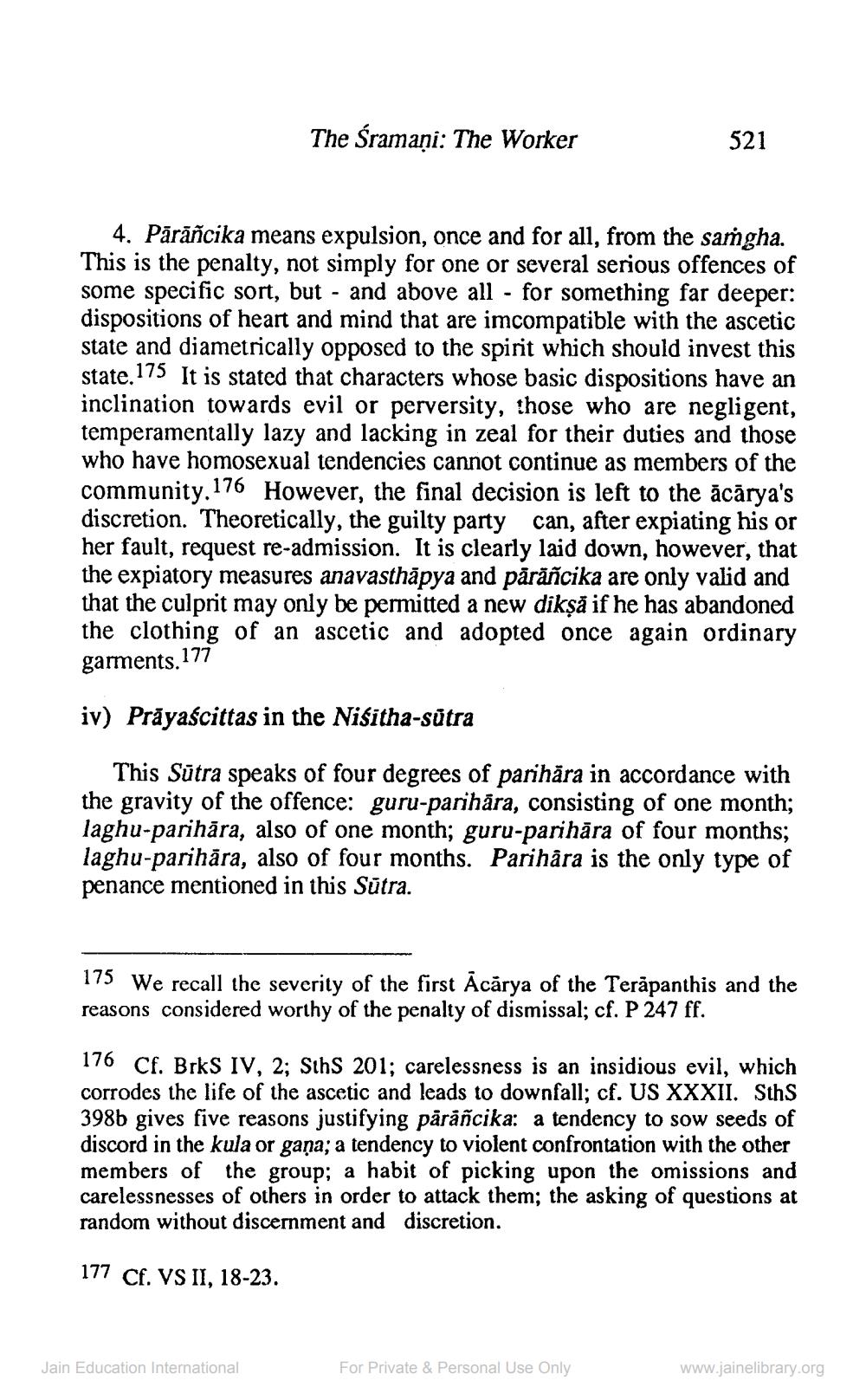________________
The Sramaņi: The Worker
521
4. Pārāñcika means expulsion, once and for all, from the samgha. This is the penalty, not simply for one or several serious offences of some specific sort, but - and above all - for something far deeper: dispositions of heart and mind that are imcompatible with the ascetic state and diametrically opposed to the spirit which should invest this state.175 It is stated that characters whose basic dispositions have an inclination towards evil or perversity, those who are negligent, temperamentally lazy and lacking in zeal for their duties and those who have homosexual tendencies cannot continue as members of the community.176 However, the final decision is left to the ācārya's discretion. Theoretically, the guilty party can, after expiating his or her fault, request re-admission. It is clearly laid down, however, that the expiatory measures anavasthāpya and pārāñcika are only valid and that the culprit may only be permitted a new dikşă if he has abandoned the clothing of an ascetic and adopted once again ordinary garments. 177
iv) Prāyaścittas in the Niśitha-sútra
This Sūtra speaks of four degrees of parihåra in accordance with the gravity of the offence: guru-parihāra, consisting of one month; laghu-parihāra, also of one month; guru-parihāra of four months; laghu-parihāra, also of four months. Parihara is the only type of penance mentioned in this Sūtra.
175 We recall the severity of the first Ācārya of the Terapanthis and the reasons considered worthy of the penalty of dismissal; cf. P 247 ff.
176 Cf. BrkS IV, 2; SthS 201; carelessness is an insidious evil, which corrodes the life of the ascetic and leads to downfall; cf. US XXXII. SthS 398b gives five reasons justifying pårāñcika: a tendency to sow seeds of discord in the kula or gana; a tendency to violent confrontation with the other members of the group; a habit of picking upon the omissions and carelessnesses of others in order to attack them; the asking of questions at random without discernment and discretion.
177 Cf. VS II, 18-23.
Jain Education International
For Private & Personal Use Only
www.jainelibrary.org




